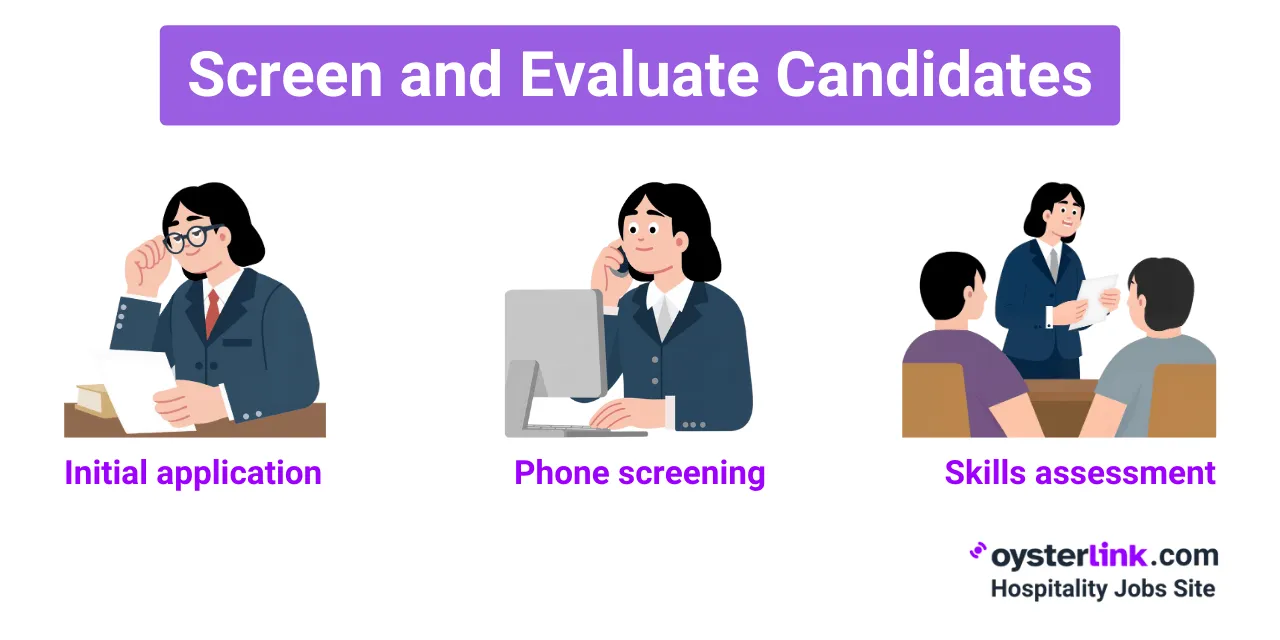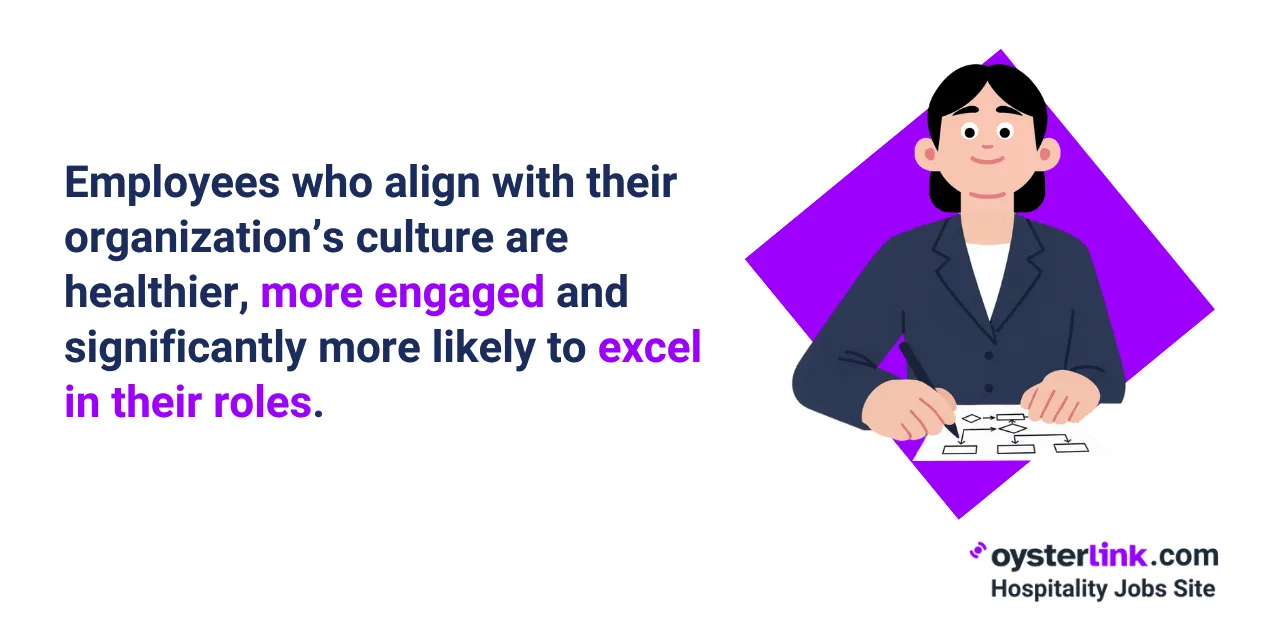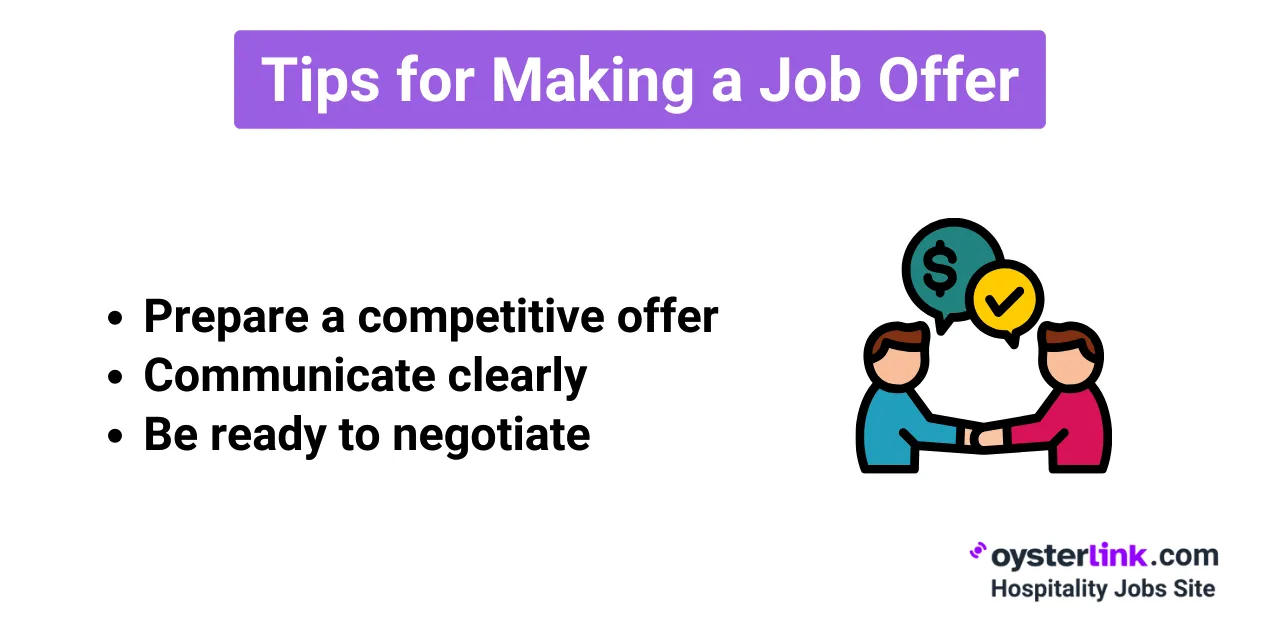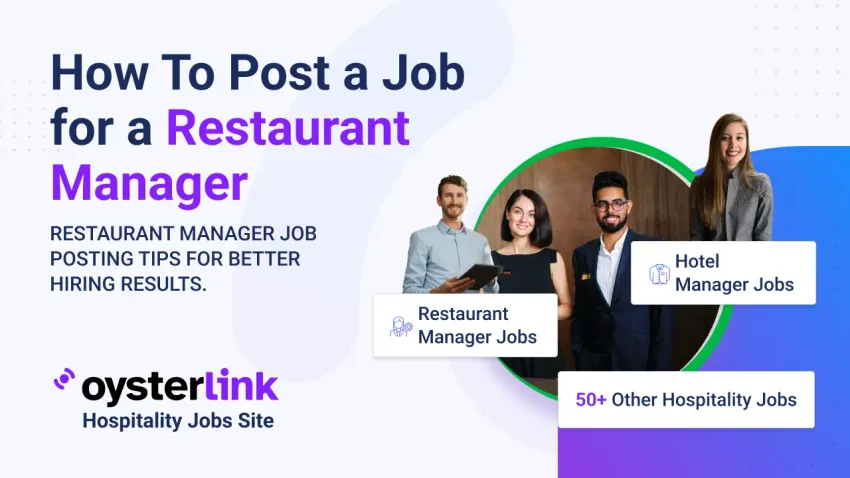Finding the right Restaurant Manager can make or break your establishment's success. This comprehensive guide will walk you through the essential steps to post a job for a Restaurant Manager effectively, ensuring you attract top-tier talent to enhance your restaurant's operations.
What To Know Before You Post a Job for a Restaurant Manager
It’s important to have a clear understanding of the role's responsibilities and requirements. A Restaurant Manager serves as the backbone of your establishment, overseeing daily operations and ensuring smooth functionality across all areas.
Key responsibilities
Restaurant Managers wear many hats, juggling various tasks to keep the business running efficiently. Their primary duties often include:
- Supervising front-of-house and back-of-house staff
- Managing inventory and supply orders
- Ensuring compliance with health and safety regulations
- Handling customer complaints and feedback
- Coordinating staff schedules and training programs
Essential skills and qualifications
When looking to post a job for a Restaurant Manager, consider the following skills and qualifications that are typically sought after in the industry:
- Strong leadership and team management abilities
- Excellent communication and interpersonal skills
- Proficiency in restaurant management software and point-of-sale systems
- Knowledge of food safety standards and regulations
- Financial acumen and budgeting experience
By clearly outlining the responsibilities and skills requirements in your job posting, you'll attract candidates who are well-suited for the demands of the position.
Guide To Post a Job for a Restaurant Manager
1. Create an Effective Job Description
A well-written job description is your first opportunity to make a strong impression on potential candidates.
To make your job posting stand out, consider these tips:
- Use action-oriented language to describe responsibilities
- Highlight growth opportunities within your organization
- Showcase your restaurant's unique culture and values
- Be specific about the qualifications you're seeking
- Include information about your restaurant's achievements or accolades
In addition to these tips, crafting an effective job posting involves other key elements.
When you post a job for a Restaurant Manager, your job title should be clear and descriptive, using terms that job seekers are likely to search for. For example, "Experienced Restaurant Manager for Upscale Italian Eatery" is specific, includes the main job role and provides additional context about the type of restaurant.
Including the location of your restaurant in the job posting is equally important, as it helps candidates determine if the position is within their desired area and improves local search visibility.
Furthermore, using structured data markup on your website’s job posting page allows search engines to better understand and display your job information in search results.
Structured data markup is a way of adding information to your webpage that highlights details such as the job title, location, salary and application deadline. This improves the way your job listing appears on search engines, often showing these details directly in the search results.
By implementing structured data, you can increase the visibility of your job posting and attract more qualified candidates.
These strategies will enhance the visibility of your job posting and help attract the most qualified candidates for your Restaurant Manager position.
2. Optimize Your Job Posting for Search Engines
To ensure your job posting reaches the widest possible audience, it's essential to optimize it for search engines by incorporating industry-specific keywords throughout your job description.
Keywords such as "restaurant management," "food service operations," "hospitality leadership," "culinary team supervision" and "customer service excellence" can help your listing appear higher in search results when potential candidates are searching for Restaurant Manager positions.
Be sure to use these terms naturally within the context of your job description to maintain readability and avoid keyword stuffing, which can negatively impact your search rankings.
3. Choose the Right Platforms To Post a Job for a Restaurant Manager
In today's digital age, there are numerous platforms available to post a job for a Restaurant Manager. Selecting the right channels can significantly impact the quality and quantity of applications you receive.
Industry-specific job boards
Consider posting your job on hospitality-focused job boards, which attract candidates specifically interested in restaurant careers. Some popular options include:
These platforms often have a higher concentration of qualified candidates with relevant experience in the restaurant industry.
General job sites
While industry-specific boards are valuable, don't overlook general job sites that have a wider reach. Popular platforms include:
These sites can help you cast a wider net and potentially attract candidates with diverse backgrounds who may bring fresh perspectives to your restaurant.
Social media platforms
Use your restaurant's social media presence to advertise your job opening. Platforms like Facebook, Instagram and Twitter can be effective for reaching passive job seekers and those already familiar with your brand.
4. Screen and Evaluate Candidates
Once you've posted your job for a Restaurant Manager and applications start rolling in, it's time to begin the screening process. Effective screening helps you identify the most promising candidates and streamline your hiring process.
Initial review of applications
Start by reviewing each application against your list of required and preferred qualifications. Look for candidates who meet the following criteria:
- Relevant experience in restaurant management
- Educational background in hospitality or business management
- Demonstrated leadership skills
- Knowledge of food safety regulations and industry standards
- Proficiency in restaurant management software
Create a shortlist of candidates who best match your requirements for further consideration.
Phone screening
Conduct brief phone interviews with your shortlisted candidates to gather additional information and assess their communication skills. During these calls, consider asking:
- Why they're interested in the Restaurant Manager position
- Their experience managing staff in a restaurant setting
- How they handle difficult customer situations
- Their approach to inventory management and cost control
These conversations will help you narrow down your list to the most promising candidates for in-person interviews.
Skills assessment
To further evaluate a candidate's capabilities, consider implementing a skills assessment. This could include:
- A mock staff meeting to assess leadership and communication skills
- A sample schedule creation exercise to evaluate organizational abilities
- A financial analysis task to gauge their understanding of restaurant finances
These assessments provide valuable insights into a candidate's practical skills and how they might perform in the role.

5. Conduct Thorough Interviews
When you post a job for a Restaurant Manager, conducting detailed interviews is crucial to finding the right fit for your establishment. Effective interviewing techniques can help you gain deeper insights into a candidate's qualifications, experience and potential cultural fit.
Prepare a structured interview guide
Create a standardized set of questions to ask all candidates. This ensures consistency in your evaluation process and allows for fair comparisons. Include a mix of:
- Key skills and experience questions
- Situational questions
- Customer service questions
Active listening techniques
Practice active listening during the interview to fully understand the candidate's responses and experiences. This involves:
- Maintaining eye contact
- Asking follow-up questions for clarification
- Paraphrasing responses to ensure understanding
- Taking notes on key points
Assess cultural fit
In addition to evaluating skills and experience, it's crucial to assess how well a candidate aligns with your restaurant's culture and values. Cultural fit plays a significant role in employee performance — research from the Harvard Business Review highlights that employees who feel aligned with their organization's culture are significantly more likely to excel in their roles.

To gauge a candidate's compatibility, consider asking:
- What type of work environment do you feel most productive in?
- How do you typically approach teamwork and collaboration?
- What are your impressions of our restaurant's concept and cuisine?
These questions can provide insight into whether the candidate will harmonize with your existing team and actively contribute to your restaurant’s vision.
6. Check References and Background
After identifying promising candidates through interviews, it's essential to verify their qualifications and work history. This step helps ensure you're making an informed hiring decision when you post a job for a Restaurant Manager.
Contact professional references
Reach out to the references provided by your top candidates. When speaking with references, consider asking:
- The candidate's primary responsibilities in their previous role
- Their strengths and areas for improvement
- How they handled challenging situations or conflicts
- Their leadership style and ability to manage a team
- Whether the reference would rehire the candidate
These conversations can provide valuable insights into a candidate's work ethic, skills and overall performance.
Verify employment history
Take the time to confirm the candidate's employment history, including:
- Dates of employment
- Job titles held
- Reasons for leaving previous positions
This verification process helps ensure the accuracy of the information provided in the candidate's application and resume.
Conduct background checks
Depending on your restaurant's policies and local regulations, you may want to conduct background checks on final candidates. These checks can include:
- Criminal record checks
- Credit history (if relevant to the position)
- Education verification
- Professional license verification (e.g., food safety certifications)
Be sure to comply with all applicable laws and regulations when conducting background checks and obtain the candidate's written consent before proceeding.
7. Make the Job Offer
Once you've identified the ideal candidate for your Restaurant Manager position, it's time to extend a job offer. This is a crucial step in the hiring process and requires careful consideration to ensure both parties are satisfied with the terms of employment.
Prepare a competitive offer
Research industry standards and consider your budget to create a competitive compensation package. Include details such as:
- Base salary
- Performance-based bonuses or profit-sharing opportunities
- Health insurance and other benefits
- Potential for advancement within the organization
A well-rounded offer demonstrates your commitment to the candidate's success and can help secure top talent for your restaurant.
Communicate the offer clearly
When presenting the job offer, be clear and concise about the terms of employment. Consider the following steps:
- Make a verbal offer first, expressing your enthusiasm about the candidate joining your team.
- Follow up with a written offer letter detailing all aspects of the compensation package and job responsibilities.
- Provide a deadline for the candidate to accept or decline the offer, typically allowing a few days for consideration.
- Be prepared to answer any questions the candidate may have about the offer or the position.
Negotiate if necessary
Be open to negotiation if the candidate expresses concerns about certain aspects of the offer. Consider:
- Flexibility in start date
- Adjustments to work schedule
- Additional training or professional development opportunities
- Slight modifications to salary or benefits
Remember that negotiation is a normal part of the hiring process and can lead to a mutually beneficial agreement.

8. Onboard Your New Restaurant Manager
After successfully posting a job for a Restaurant Manager and securing the right candidate, it's crucial to have a comprehensive onboarding process in place.
Effective onboarding sets the stage for long-term success and helps your new manager integrate smoothly into your restaurant's operations.
Create a structured onboarding plan
Develop a detailed onboarding schedule that covers the first few weeks of employment. Include:
- Introduction to company culture, mission and values
- Overview of restaurant policies and procedures
- Training on specific management systems and software
- Shadowing shifts in various roles to understand all aspects of the operation
- Meetings with key team members and stakeholders
A well-organized plan ensures that all essential information is covered and helps the new manager feel supported during their transition.
Provide necessary resources
Equip your new Restaurant Manager with the tools and information they need to succeed. This may include:
- Employee handbook and operational manuals
- Access to management software and scheduling systems
- Contact information for key vendors and suppliers
- Historical data on sales, labor costs and other key performance indicators
Having these resources readily available allows the new manager to hit the ground running and make informed decisions from day one.
Set clear expectations and goals
Establish clear performance expectations and goals for the first 30, 60 and 90 days. This might include:
- Familiarizing themselves with all aspects of the restaurant's operations
- Conducting staff evaluations and identifying areas for improvement
- Implementing strategies to increase efficiency or reduce costs
- Developing plans for menu updates or marketing initiatives
Regular check-ins during this period can help ensure the new manager is on track and provide opportunities for feedback and support.
9. Measure Success and Continuous Improvement
After you post a job for a Restaurant Manager and successfully bring a new leader on board, it's important to establish metrics for success and foster a culture of continuous improvement.
This approach ensures that your restaurant maintains high standards and adapts to changing industry trends.
Key Performance Indicators (KPIs)
Identify and track relevant KPIs to measure the success of your new Restaurant Manager. Some important metrics to consider include:
- Customer satisfaction scores
- Employee turnover rates
- Food and labor cost percentages
- Average check size
- Table turn times
- Revenue growth
Regularly review these metrics with your Restaurant Manager to assess performance and identify areas for improvement.
Implement regular performance reviews
Schedule periodic performance reviews to provide feedback and discuss progress. These reviews should:
- Assess performance against established goals and KPIs
- Identify strengths and areas for development
- Set new objectives for the upcoming period
- Discuss career growth opportunities within the organization
Regular feedback helps maintain open communication and ensures alignment between the manager's performance and the restaurant's goals.
Encourage professional development
Support your Restaurant Manager's ongoing growth and development by:
- Providing access to industry conferences and workshops
- Offering opportunities for additional certifications or training
- Encouraging networking with other professionals in the field
- Implementing a mentorship program with seasoned industry veterans
Investing in your manager's professional development not only enhances their skills but also demonstrates your commitment to their long-term success.
Foster a culture of innovation
Encourage your Restaurant Manager to bring fresh ideas and innovative approaches to your establishment. This might include:
- Implementing new technologies to streamline operations
- Exploring sustainable practices to reduce environmental impact
- Developing unique marketing strategies to attract new customers
- Creating special events or promotions to boost engagement
By fostering a culture of innovation, you ensure that your restaurant stays competitive and continues to evolve in a dynamic industry.
How Long It Takes To Hire a Restaurant Manager
The time it takes to hire a Restaurant Manager can vary based on your location, concept and level of experience required. On average, the hiring process may take anywhere from a few weeks to over a month, especially if you’re searching for a candidate with strong leadership and operational expertise. Posting a clear, detailed job listing from the start can help reduce delays by attracting more qualified applicants.
Several factors can speed up or slow down the process. Competitive pay, flexible scheduling and a well-known brand often lead to faster responses, while vague requirements or limited visibility can extend the timeline. Being responsive to applicants and scheduling interviews promptly also plays a key role in keeping top candidates engaged throughout the hiring process.
When To Repost or Refresh a Restaurant Manager Job Listing
If your Restaurant Manager job post isn’t generating quality applications within the first two weeks, it may be time to refresh the listing. Updating the job description with clearer responsibilities, more realistic qualifications or added details about pay and benefits can make the role more appealing to experienced candidates.
Reposting can also help increase visibility, especially if the original listing has moved down in search results. Expanding where you post the job, adjusting keywords or highlighting growth opportunities can attract a new pool of applicants. Regularly reviewing and refining your listing ensures your job post stays competitive and continues to reach the right talent.
Common Mistakes To Avoid When Posting a Restaurant Manager Job
One of the most common mistakes when posting a restaurant manager job is being too vague about responsibilities and expectations. Generic descriptions make it harder for qualified candidates to understand the role and easier for unqualified applicants to apply. Be specific about leadership duties, operational oversight and performance goals.
Another frequent issue is setting unrealistic requirements, such as excessive experience for an entry-level management role or long hours without flexibility. Missing or unclear pay information can also discourage strong candidates, as many managers expect transparency before applying. By clearly outlining compensation, growth opportunities and day-to-day responsibilities, you create a more trustworthy and appealing job post that attracts the right talent from the start.
How To Post a Job for a Restaurant Manager: Conclusion
Posting a job for a Restaurant Manager is more than filling an open role — it’s an opportunity to bring in a leader who can elevate your team and guest experience. By writing a clear job description, choosing the right platforms and avoiding common hiring mistakes, you position your restaurant to attract qualified, motivated candidates. A thoughtful, well-structured job post not only saves time in the hiring process but also sets the foundation for long-term success in your operation.










Loading comments...